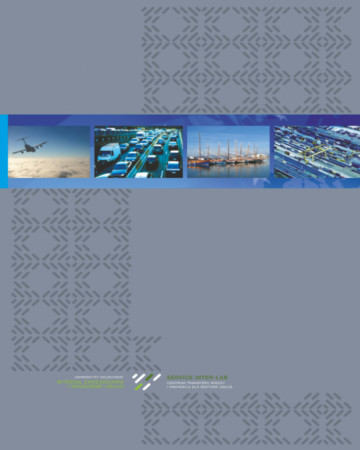
ISSN: 1644-275X
eISSN: 2353-3005
OAI
DOI: 10.18276/ptl.2016.36-04


Issue archive /
nr 4 (36) 2016
Monitorowanie emisji dwutlenku węgla w transporcie morskim jako pierwszy krok w kierunku redukcji emisji GHG z żeglugi
(Monitoring of Carbon Dioxide Emission from Maritime Transport as a First Step Towards Reducing the GHG Emissions From Shipping)
| Authors: |
Magdalena
Klopott
Katedra Logistyki i Systemów Transportowych, Akademia Morska w Gdyni |
| Keywords: | emission monitoring emission of carbon dioxide maritime transport regulation MRV |
| Data publikacji całości: | 2016 |
| Page range: | 10 (41-50) |
| Klasyfikacja JEL: | F64 K42 |
Abstract
The purpose of the article is to analyse systems of monitoring, reporting and verification (MRV) of fuel consumption and CO2 emission data from ships. The analysis in conducted on the basis of participant observation and document analysis methods. In the introduction the newest data regarding the emission of CO2 from international shipping is briefly presented. The article subsequently describes the obligation to monitor ship’s CO2 emissions imposed by the EU MRV regulation coming into force in 2018, which also defines the stages of the first period of reporting. The analogous global data collection system developed by the IMO, which is expected to commence in 2019, is described together with the draft of amendments to Annex VI of MARPOL convention in the form of regulation 22A. Both systems are compared and contrasted. Crucial shortcomings of the system proposed by the EU are presented and exemplified, in particular with regards to the protection of commercial data (e.g. transport work).
Download file
Article file
Bibliography
| 1. | Anderson, K., Bows, A. (2012). Executing a Scharnow Turn: Reconciling Shipping Emissions with International Commitments on Climate Change. Carbon Management, 3 (6), 615–628. DOI: 10.4155/cmt.12.63. |
| 2. | Bazari, Z., Longva, T., Assessment of IMO Mandated Energy Efficiency Measures for International Shipping (MEPC 63/INF.2, 2011). Executive summary, 8. |
| 3. | IMO (2015). Third IMO Greenhouse Gas Study 2014. London. |
| 4. | Komunikat Komisji do Parlamentu Europejskiego, Rady, Europejskiego Komitetu Ekonomiczno-Społecznego i Komitetu Regionów: Włączenie emisji z transportu morskiego do unijnej polityki w zakresie ograniczenia emisji gazów cieplarnianych, COM(2013)479 final. |
| 5. | Nelissen, D., Faber J., (2014). Economic Impacts of MRV of Fuel and Emissions in Maritime Transport. Delft: CE Delft. |
| 6. | Regulation (EU) 2015/757 of the European Parliament and of the Council of 29 April 2015 on the monitoring, reporting and verification of carbon dioxide emissions from maritime transport, and amending Directive 2009/16/EC. |
| 7. | MEPC (2016a). Report of the Marine Environment Protection Committee on its sixty-ninth session (IMO Docs MEPC 69/21). |
| 8. | MEPC (2016b). Further technical and operational measures for enhancing the energy efficiency of international shipping, Report of the Working Group (IMO Docs MEPC 69/WP.10) |
| 9. | Pojawa, B., Modzel, S., Grochowski, T., Michałowski, R. (2014). Aktualne uregulowanie prawne IMO w zakresie zapobiegania zanieczyszczaniu powietrza przez statki. Logistyka, 6, 1061–1069. |
| 10. | Rada Europejska (2014). Rada Europejska (23 i 24 października 2014 r.) ‒ Konkluzje, EUCO 169/14. |
| 11. | Shi, Y. (2016). Reducing Greenhouse Gas Emissions from International Shipping: Is it Time to Consider Market-Based Measures? Marine Policy, 64, 123–134. |
| 12. | Szelangiewicz, T., Żelazny, K. (2013). Poziom emisji CO2 jako kryterium projektowe współczesnych statków transportowych. Prace Naukowe Politechniki Warszawskiej „Transport”, 98. |